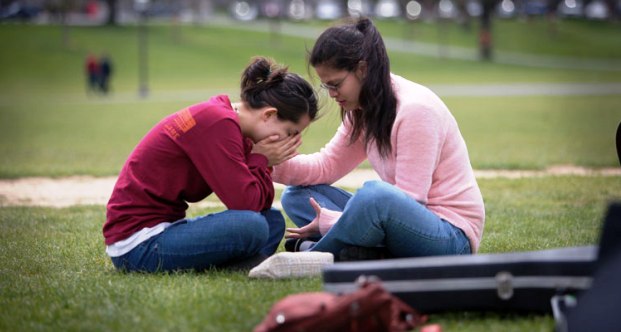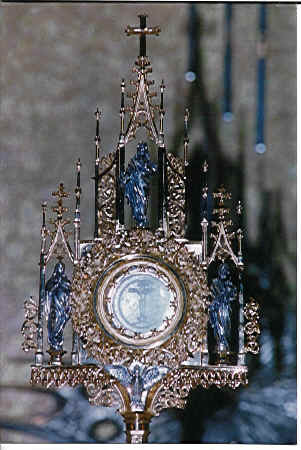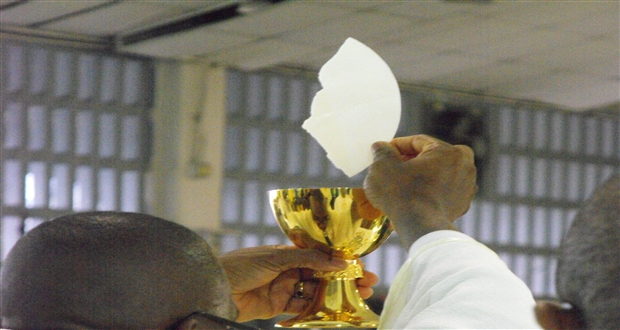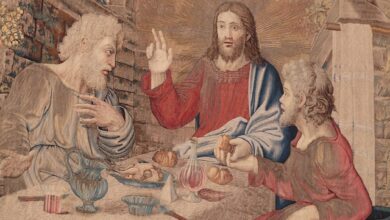Bishop Barron Inspires Renewal: Embracing Poverty, Chastity, and Obedience

In an impassioned and inspirational address, Bishop Robert Barron captivated a large audience, emphasizing the importance of living out the core principles of Catholic faith: poverty, chastity, and obedience. His talk, marked by enthusiasm and deep spiritual insight, highlighted the transformative power of the Eucharist and the call for Christians to embody Christ’s love and sacrifice in the world.
Bishop Barron began by reflecting on the significance of the Eucharistic procession witnessed earlier, expressing how it was one of the great moments of his priesthood. He emphasized the undeniable presence of the Holy Spirit among the gathered faithful and shared a humorous anecdote about his friendship with Jonathan Roumie, who portrays Jesus in “The Chosen.”
Drawing from the words of the English Catholic apologist Ronald Knox, Barron noted that while many of Jesus’ commands are often disregarded, the command to “do this in remembrance of me” has been faithfully followed through the centuries. He explained that the real presence of Jesus in the Eucharist is not just His body and blood in a physical sense but His body given and blood poured out for the world.
Barron then challenged the audience to understand that Christianity is not a self-help program but a mission for the world. He stressed that receiving the Eucharist should transform believers into vessels of Christ’s love, ready to give themselves for others. He urged the faithful to be the light of the world, as Jesus commanded, and to engage in society with the vigor and commitment that can truly effect change.
Highlighting the teachings of Vatican II, Bishop Barron encouraged the laity to embrace their sacred obligation to live their faith radically. He envisioned a scenario where if all 70 million Catholics in America lived their faith with fervor, they could profoundly impact the nation. He cited the call for Catholics to excel in various fields – law, politics, education, and more – and to bring Christ’s light into every aspect of the secular world.
Barron elaborated on the three evangelical counsels: poverty, chastity, and obedience. He explained that while the laity are not called to the same material poverty as monks or friars, they are called to detachment from worldly goods. This detachment, he argued, allows God’s grace to flow through them more freely, enabling them to serve the poor and live for the greater good.
On chastity, Barron clarified that it involves living one’s sexual life in a morally and spiritually responsible way, aligned with the true essence of love – willing the good of the other. He asserted that living according to the church’s teachings on sexuality would counteract many societal ills, such as abortion, sexual abuse, and the objectification of individuals.
Finally, Barron addressed obedience, urging the audience to listen to the voice of God rather than the myriad voices of the world that promote wealth, pleasure, power, and honor. He encouraged the faithful to follow the example of biblical figures who heeded God’s call and lived according to His will.
Concluding his talk, Bishop Barron painted a vision of a heavenly Jerusalem, a city where every aspect of life is directed toward the praise of God. He called on the laity to bring the light of Christ into the world, transforming society and setting the world on fire with God’s love.
The audience responded with applause, moved by Bishop Barron’s call to live out their faith with renewed dedication and to embrace the transformative power of the Eucharist in their daily lives.






